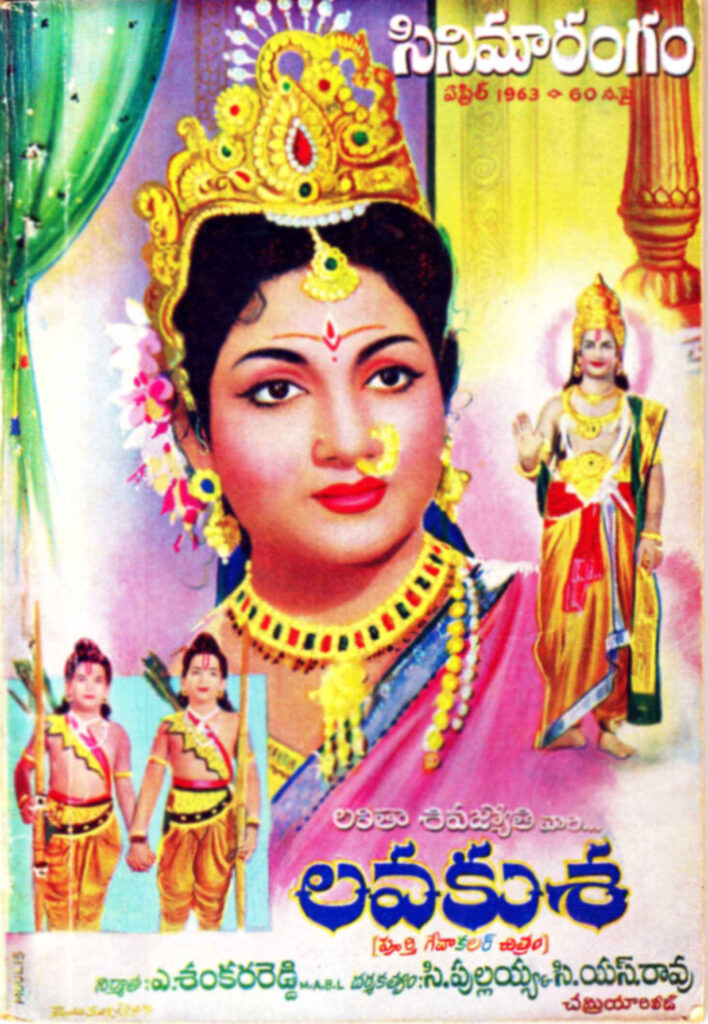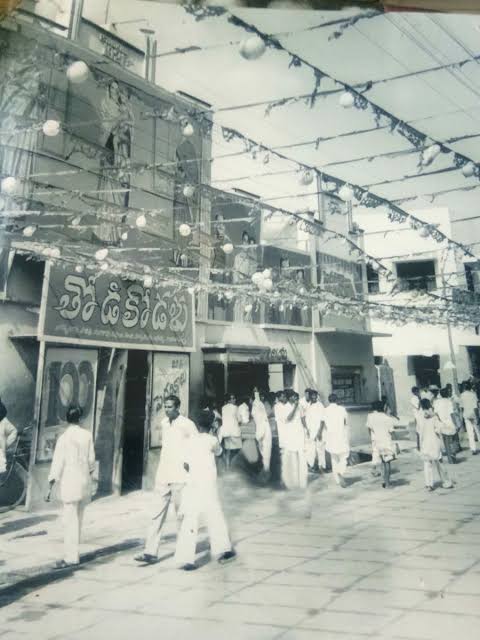Vijayawada was the first city in the undivided State of Andhra Pradesh where a movie theatre was built. Did you know Vijayawada was the first city to build a movie theatre in the State? Way back in 1921, Pothina brothers – Sreenivasa Rao and Ganapati Rao Patrudu constructed ‘Maruthi Talkies’ in the One Town area, which screened movies right from the silent era.

Maruthi Talkies was the only theatre that catered to the needs of the movie buffs in the early 1920s until movie halls like Durga Kala Mandiram and Jai Hind came up in Two Town area in the late 1920s and 1930s.“I still remember watching a silent movie – Draupadi Vasthrabharanam in Maruthi Talkies. I remember the ticket was Kani (one-sixteenth of a rupee),” recollected octogenarian Padmasree Turlapati Kutumba Rao, former chairman AP Grandhayala Samstha.Sharing an interesting incident, Mr Rao said that the film, when released had Bheema (of Pandavas) without a moustache in one scene. “The makers failed to realise the faux pas and completed the film without the twirling moustache on Bheema’s face. People refused to visit the theatre as the character was without a moustache. Somehow the operator meddled with the negatives and came out with a moustache (though not a menacing one) to draw the crowd. In fact, the theatre folks went around neighbourhood beating of the drums to announce “Bheemuduki Meesalu Ochindiaho (Bheema got back his moustache!),” said Mr Rao.Senior columnist late Andavalli Satyanarayana said that popular mythological films used to be screened at Maruthi. “The best of NTR and ANR films used hit the screen and the balcony ticket rate, if my memory is correct, was Rs.1.50 in the 1940s,” he said.
He also recollected the role of Prasad Brothers (of Challapalli) in establishing theatres like Saraswathi and Leela Mahal in the 1940s. “Saraswathi used to screen Hindi films and Leela Mahal beamed English films. Kavi Samrat Viswanatha Satyanarayana used to watch the English films at Leela Mahal regularly,” reminisced Mr Satyanarayana.Senior citizens still remember the hall turning into a smoking den as there were no restrictions on smoking in a movie hall.Movie promotions were done only through wall posters. They used to occupy every inch of walls available in the city.The release of a new movie was announced by through a loud-speaker-fixed rickshaw which travels across the neighbourhood announcing the movie. Kids would run behind the rickshaw to collect pamphlets of the film of their favourite hero.
The shifting of film distribution from Vijayawada to Hyderabad and the constant technological changes in the tinsel world made several theatre owners give up film business. “Maintaining a movie hall is not that lucrative nowadays.Many theatres are making huge losses as the patronage from the moviegoers is on the wane. That is the reason why many landmarks are getting gradually erased, paving the way for commercial and residential complexes,” said V. Subba Rao, an exhibitor.Maruthi Theatre screened the first colour film-ever produced by Telugu film industry “Lavakusa”.Along with Maruti, theatres like Jawahar (Vijaya Talkies), Lakshmi (Swarna Complex), Leela Mahal, Saraswathi, Sesh Mahal, Eswar Mahal (Radha Theatre) and Venkateswara Theatre were consigned to history and many (old theatres) are in the pipeline to meet the same fate.




